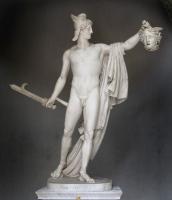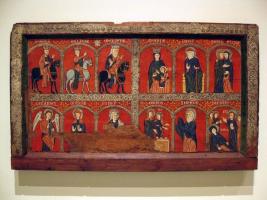Knowledge is power
"Knowledge is power" means that the more knowledge a person has about something or someone, the more power they will have. Roughly, the phrase refers to how knowledge about something gives us provides more options and better ways to deal with the situation.
The phrase "knowledge is power" has become a popular saying, despite having been a subject of study from Aristotle's time to contemporary times with Michel Foucault. Therefore, the phrase has been attributed to innumerable authors, being the authorship of Francis Bacon the most widespread.
Below are some of the best-known authors who studied the topic of knowledge as power in chronological order:
- Aristotle (384-322 a. of C): incorporates the concepts of sensitive knowledge linked to different levels of knowledge to finally reach understanding.
- Francis Bacon (1561-1626): knowledge is power is a justification for promoting applied science.
- Thomas Hobbes (1588-1679): the concept of knowledge is power is applied in the area of politics.
- Michel Foucault (1926-1984): makes the parallel between exercising knowledge and exercising power.
This phrase has also been associated with the return to nature, that is, to return to the knowledge of nature, because in it lies the power of life and the Earth.
The phrase "knowledge is power" has also become popular as a satire represented by a sloth whose best known phrase is: "When you've been studying non-stop for a minute, knowledge is power".
In Francis Bacon

Francis Bacon (1561-1626) is considered the father of the scientific method and from philosophical empiricism. Empiricism affirms the importance of experience in the process of acquiring knowledge.
In his work Meditationes Sacrae written in the year 1597 is the Latin aphorism 'ipsa scientia potestas est ' which is literally translated as 'knowledge in the power of him', then reinterpreted as 'knowledge is power'.
Francis Bacon exemplifies this by pointing out the absurdity of disputes over the limits of God's knowledge versus the limits of his power, since knowledge itself is a powerTherefore, if his power is unlimited, his knowledge will be as well. Francis Bacon further explains the relationship of knowledge and experience in the following sentence:
Knowledge is acquired by reading the fine print of a contract; the experience, not reading it.
The phrase "knowledge is power" is also attributed to Francis Bacon's secretary and founder of political philosophy and modern political science. Thomas Hobbes (1588-1679) that in his work Leviathan, written in the year 1668, includes the Latin aphorism "scientia potentia est"which means 'knowledge is power', sometimes translated as 'Knowledge is power'.
In Aristotle

Aristotle (384-322 a. of C) in his work Nicomachean Ethics defines his theory of knowledge starting from sensitive knowledge that derives from the sensation being an immediate and fleeting knowledge typical of the lower animals.
From sensitive knowledge, or from sensations, we have the starting point to acquire a type of experience that brings us closer to the reality of concrete substances defined by Aristotle as the know productive or also called technical knowledge.
The second level of knowing is know practical which is the ability to rationally order our behavior, both public and private.
The third level of knowing is called contemplative knowledge or theoretical knowledge where there is apparently no special interest. This knowledge takes us to the highest level of knowledge where the activity of the understanding that looks for the why and the cause of things. It is where the wisdom.
In Michel Foucault

The French philosopher and psychologist Michel Foucault (1926-1984) explains the intimate relationship that knowledge maintains with power.
According to Foucault, knowledge is acquired as a function of define a truth. In a society, the role of those who define the truth is the transmission of this knowledge what is done by norms and behaviors. Therefore, in a society exercising knowledge is synonymous with the exercise of power.
Foucault further defines the power as a social relationship where there is on the one hand the exercise of power itself and resistance to power on the other.



